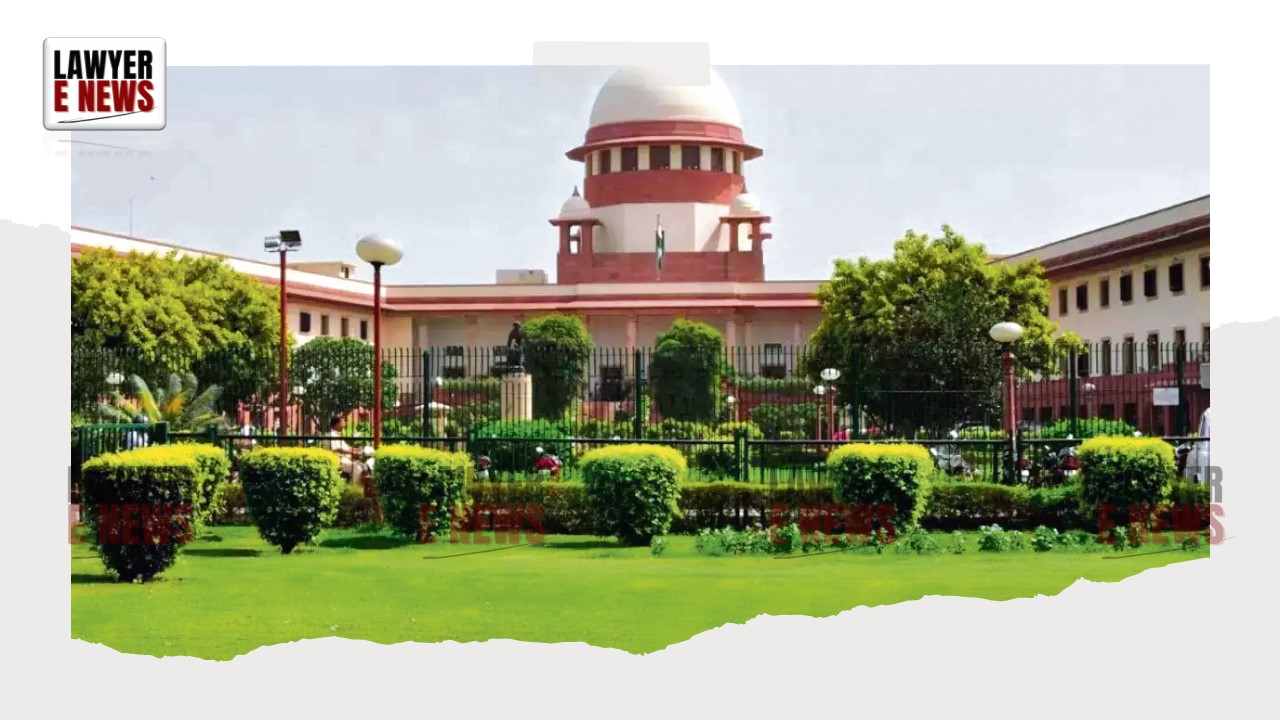-
by sayum
17 February 2026 8:32 AM



“A Draft DSR Is Virtually a Non-Existing Document for Environmental Clearance”— In a judgment of profound consequence for environmental governance, the Supreme Court of India upheld the National Green Tribunal’s decision quashing a sand mining e-auction notice issued on 13 February 2023 in Saharanpur, Uttar Pradesh. The Court declared that the absence of a final District Survey Report (DSR) vitiated the entire auction process and rendered any Environmental Clearance (EC) granted on the basis of a draft DSR as legally untenable.
“A draft DSR is virtually a non-existing DSR for the purpose of grant of environmental clearance.”
“The Foundation of Environmental Clearance Cannot Be a Document That Is Incomplete and Non-Final”
The Court noted that under the Environment Impact Assessment (EIA) Notification of 2006, as amended, a valid and finalized DSR is a precondition for environmental appraisal for B2 category projects such as sand mining. The auction was challenged before the NGT by respondent Gaurav Kumar, who argued that the 2017 DSR had expired and only a draft DSR dated 13.01.2023 existed, which had not undergone public consultation, scrutiny, or final notification.
The Supreme Court categorically rejected the State’s contention that a draft report could suffice for the initiation of the clearance process:
“Preparation of a DSR as per the procedure prescribed under Appendix X, read with para 7(iii)(a) of the EIA Notification, is required to be followed meticulously.”
“Environmental Due Diligence Is Not a Mere Formality—It's a Shield Against Irreversible Damage”
Drawing from precedents like Deepak Kumar v. State of Haryana and State of Bihar v. Pawan Kumar, the Court stressed the environmental vulnerability of riverine ecosystems and the link between illegal sand mining and organized crime.
“Unregulated sandmining disrupts riverine ecosystems and the illicit sand trade often operates under the shadow of organised crime... absolute standards with get-tough policies, strict enforcement and quick accountability are compelling for effective regulatory control.”
The Bench comprising Justice Pamidighantam Sri Narasimha and Justice Manoj Misra declared that neither the District Environmental Assessment Committee (DEAC) nor the District Environment Impact Assessment Authority (DEIAA) had any lawful basis to recommend environmental clearance on a non-finalized document.
“A valid and a subsisting DSR alone can be the basis for an application for grant of EC. A draft DSR is untenable for grant of an EC.”
“DSR Must Be Publicly Notified, Reviewed and Finalized—Any EC Without This Process Is Vitiated”
The Court emphasized that the DSR is not a mere administrative note but a statutory prerequisite. It must be prepared every five years, publicly notified, subjected to public comments, and finalized in accordance with law.
“The lifetime of the report is five years. After five years, the existing DSR will not be tenable, and a new DSR will have to be prepared and finalized.”
On these grounds, the Court dismissed the appeals filed by the State of U.P., Vedanta Associates, and Nutressaorganics India Pvt. Ltd., holding that NGT’s decision to quash the auction was correct and in full consonance with environmental law.
Reaffirming the inviolability of the environmental clearance framework, the Supreme Court held that initiating auction or granting EC on the basis of a draft DSR is a breach of legal requirements and undermines environmental safeguards. The ruling mandates all authorities to abide strictly by procedural protocols and sends a clear message that ecological compliance cannot be circumvented for administrative convenience.
“The DEIAA and DEAC are fastened with the statutory duty of preparing the DSR every five years... this duty compels them to have a comprehensive and real-time perspective of the environmental position of the district.”
Date of Decision: 8 May 2025
